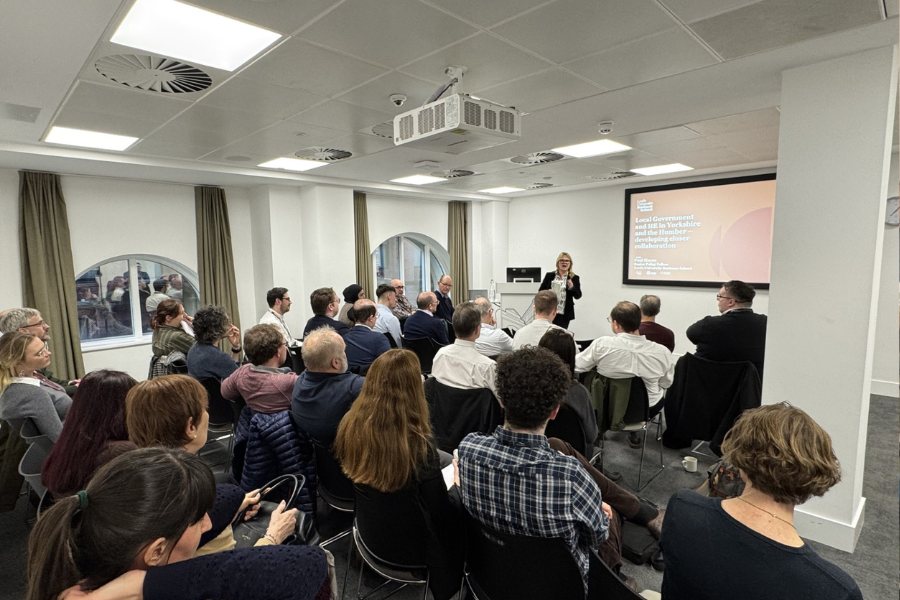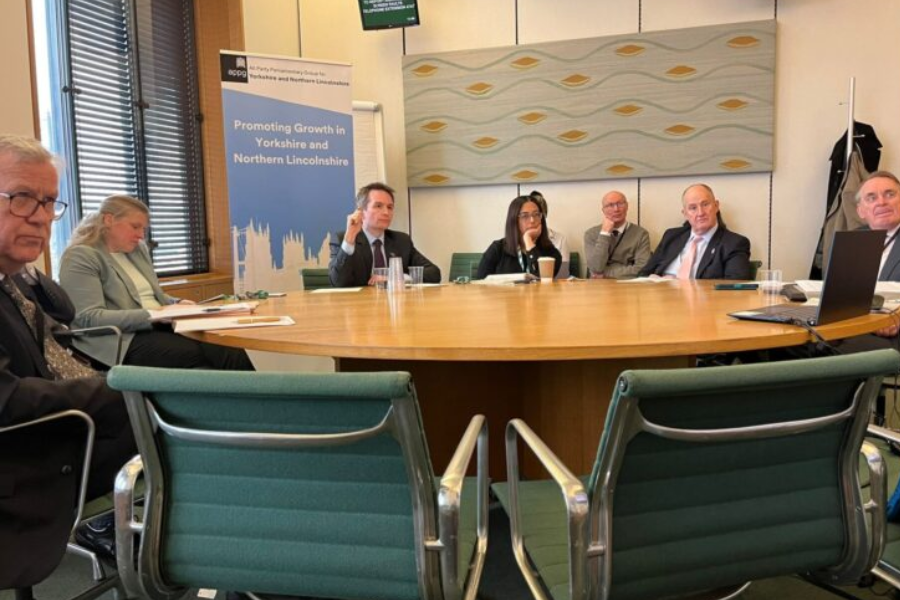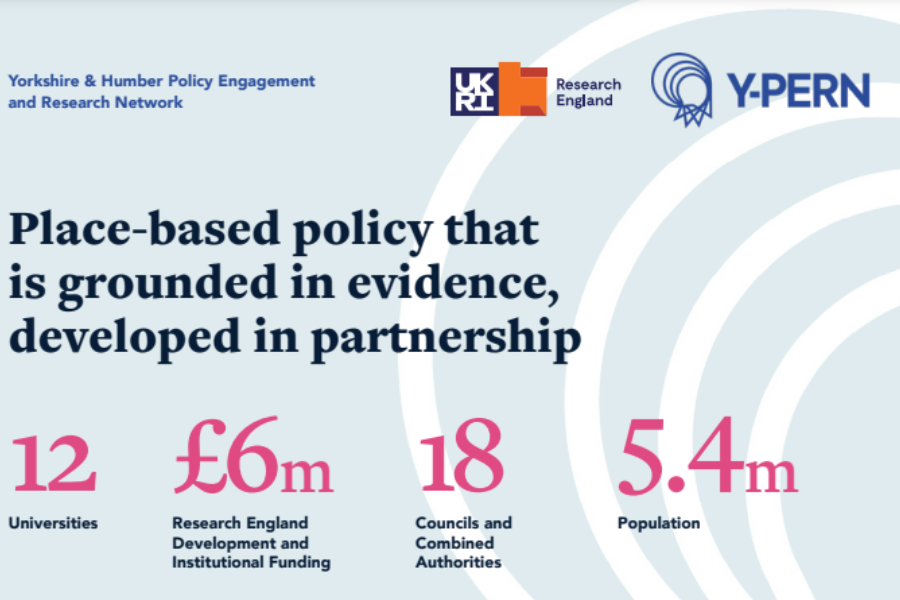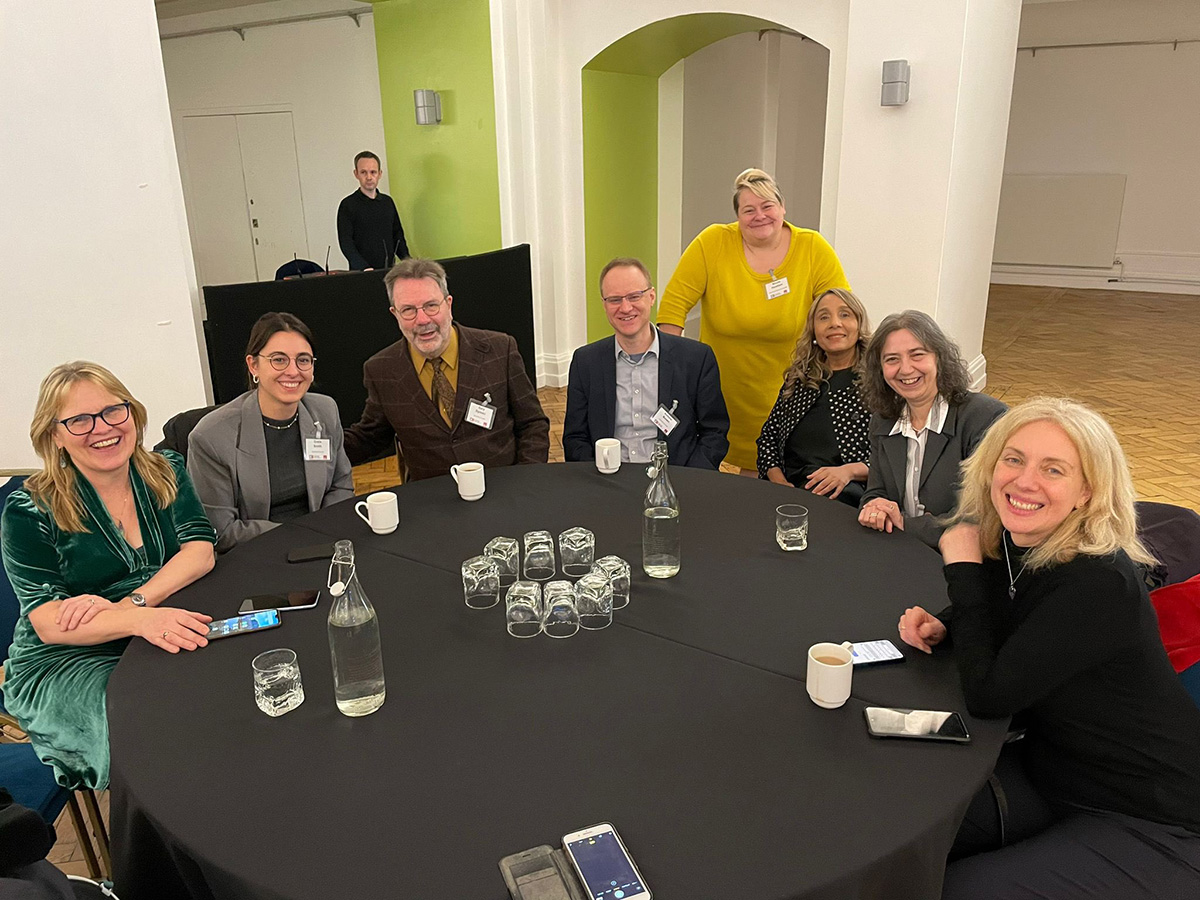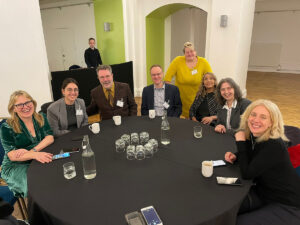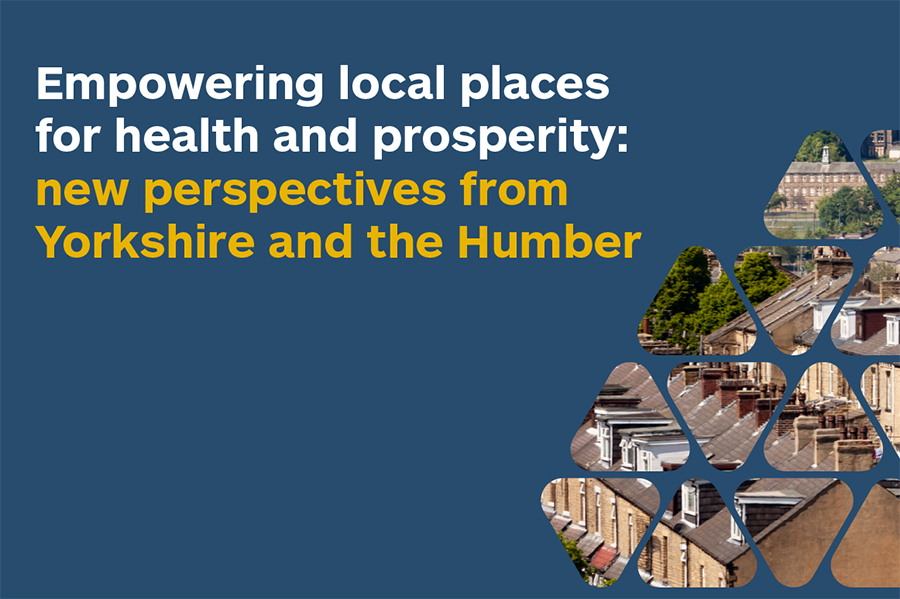Y-PERN hosted a meeting of the newly reconvened Yorkshire and Humber Councils Policy Officer Network (YHCPON) at the Cloth Hall Court in Leeds in January 2025. The meeting brought together local and combined authority policy and strategy officers from across the Yorkshire and Humber Councils network to discuss a range of issues.
The meeting was led by Professor Kersten England, the Y-PERN Director of Engagement, and Paul Hayes, Senior Policy Fellow based at the Leeds University Business School, who both have considerable experience of working across local government in the region. Topics discussed include how the group should work, what the most useful issues are to focus on, and how universities can support them.
Participants agreed on the value and appetite to develop the work of the Policy Officer Network to build relationships, collaborations, and shared understanding across the local and combined authority policy officer community of the Yorkshire and Humber region.
There was agreement that the network should focus on the more significant policy issues and broader trends at a local, regional, and national level, providing ‘headspace’ to explore opportunities to identify and implement systematic transformational change.
A key aim was to facilitate smarter working through sharing and agreeing priorities and explore how local and combined authorities might better engage with academics and access research. The challenge of navigating diverse local and combined government was signposted as important, as was engaging early career policy officers with academic researchers.
Key Outcomes:
- Discussions about the importance of place as a key lens to focus activities for the network were had, particularly as a Yorkshire and Humber regional or mayoral combined authority scale is not always the most appropriate to consider policy issues. Merging research with context and circumstances of place is thus important, as is consideration for research and policy transfer and scaling.
- Place was also seen as important to understand better the local and regional intelligence and data landscape.
- The network also stressed a keenness to better connect local and combined authorities with bodies such as the National Institute for Health Research ‘Health Determinants Research Collaborations’ with those without to develop shared understanding of their place-based working approaches.
- A presentation on the English Devolution White Paper, published in December 2024, was also provided by Y-PERN Policy Fellow, Neil Barnett (Leeds Beckett University), who outlined some of its challenges and opportunities. Subsequent discussions about devolution indicated that plans for local government reorganisation (outlined in the White Paper) would not impact on the region as there were now four combined authorities already in existence – which will now be called strategic authorities. Some concerns were expressed, however, about a potential ‘power drain’ if local government is increasingly seen by central government as a ‘delivery agent’ of combined authorities with little agency for local policy initiatives.
- There was a shared desire to develop shared oversight and understanding of regional and sub-regional interactions with the UK government to build a collective Yorkshire Humber voice with the government and relevant departments and agencies. It was noted that the White Paper opens space for the regional policy communities to enhance joined-up and wider determinants policy work and collectively determine (and innovate) in shaping local and regional evaluation and outcomes frameworks, measuring and valuing things in ways which are reflective and sensitive local, place-based contexts and needs. Participants noted that better connect emergent Local Growth Plans across the region could be a valuable tool in this facilitating this work.
Policy Officers noted that the region’s universities were seen as key to facilitating collaboration through Y-PERN, YPIP, the Yorkshire and Humber National Institute for Health Research Applied Research Consortium (particularly the region’s four Health Determinants’ Research Collaborations) and the wider Yorkshire Universities in supporting place-based engagement and policymaking.
Ongoing work on local and combined authority Areas of Research Interest was identified as potentially significant in establishing policy-themed ‘communities of practice’ across the region to support collaboration, policy transfer and scaling.
Several participants noted however, that it was also important to open up spaces to consider how to strengthen community engagement, voice and agency in both widening and deepening devolution, and shaping evaluation and outcomes criteria. The potential role of YPIP in this work was identified as significant.
The meeting concluded with agreement that YHCPON should meet regularly, with future meetings focusing on issues such how to build ‘communities of practice’ linked to identified policy areas, the better circulation of information about research and policy, how can universities enhance engagement with non-university local authorities, and how can ‘best practice’ be transferred between local authorities and combined authorities.

